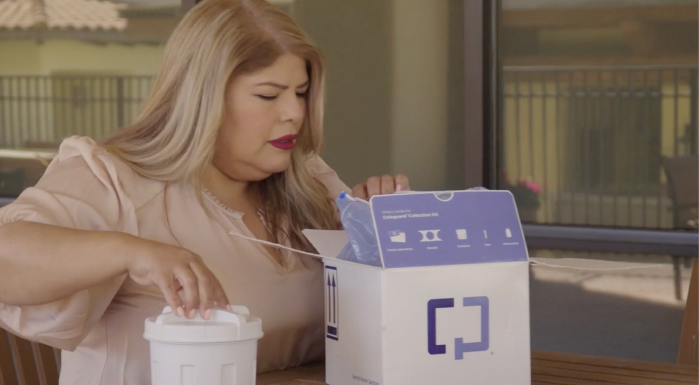Real Cologuard® Story: Yla
Meet Yla
Colon Cancer Survivor,
Screened with the Cologuard test
“The Cologuard test took the pressure off of screening for colon cancer and was a total blessing for me.”
There is no stop in Yla. Only go.
At 56 years old and on the other side of treatment for stage III colon cancer, that’s truer than ever. Between working full time as a Realtor, planning her next adventure with her “cruise squad” friends, and hosting brunches at her home, you wouldn’t know how drastically different her life was just a few short years ago.
“I don’t live in the past. And I don’t tell myself what I would have, could have, and should have done by screening for colon cancer as soon as I was eligible.”
As it turned out, Yla’s timing with getting screened was remarkable in its own way. Just weeks before COVID-19 shut many services down, Yla checked in with her OB-GYN. She was feeling fine, but felt like the start of a new year was as good of a time as any to get a visit in. Call it good timing, call it random chance, call it a gut feeling.
But Yla?
“Coincidences? I don’t know about those. They only take you so far.”
A gentle reminder from her OB-GYN at the end of that visit ended up being the push Yla needed to get screened.
“I know you’re super busy,” Yla recalls her provider saying, “There is an option called the Cologuard test. It’s easy to use and comes right to your house.”

It ended up being the perfect option for Yla, who was 54 at the time and at average risk for colon cancer.
“It took the pressure off of screening and was so easy for me to use,” Yla said. “Sure, there was a feeling of what if but I tried to block that out of my mind.”
That what if felt a little louder a week later, when Yla’s provider told her the result was positive and Yla would need a colonoscopy right away to complete her screening since she chose a noninvasive method. In she went – having never had anesthesia, having never stayed in a hospital and doing it all with no visitors allowed.
“It was one of the last appointments before things shut down. I felt like a hero in an action movie, just sliding in before the doors closed.”
That colonoscopy set in motion a series of scans, tests and, ultimately, a surgery that revealed stage III colon cancer that would require chemotherapy – 12 treatments over the course of six months.
Yla used every bit of that time to let herself be taken care of and supported so she could finally process her emotions.
The biggest one? Shock. She had felt fine and took care of herself.
“People think Oh, that’s not going to be me. Let me tell you: nobody is immune to colon cancer. It doesn’t care who you are and it does not discriminate. People need to take this seriously.”
That shock gave way to gratitude for having a screening option that gave her control.
“The Cologuard test made it so easy for me to get screened. But the reality is that early detection is key. If you screen when you’re eligible and potentially prevent going through something like chemo? That’s the whole point.”
She has taken just enough from her diagnosis and treatment with her into the present that the past feels a little lighter – the memories of her diagnosis and treatment less burdensome.
She’s keen not to get too comfortable there. Not when there’s still so much for Yla to do and to be for those in her circle – her cruise squad, her brothers, her family.
“I didn’t ask for this journey, but it’s one of hope. And that’s what you have to hold on to. Living in fear keeps you from living. Live your life to the fullest, no matter your situation. Sometimes it’s by day, sometimes it’s by minute. You have to fight – that’s the truth of it all.”
This story reflects one individual’s experience. Not every person will have the same treatment, experience, outcome, or result. The Cologuard test is prescribed by a health care provider. Talk to your health care provider about available screening options and whether the Cologuard test may be right for you. There are potential risks associated with the Cologuard test and it may not be appropriate for all patients. For more information about the risks, talk to your health care provider or visit Cologuard.com/risk-information for more information.
